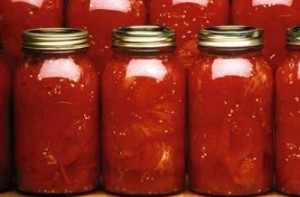With the first ramps making their way to New York restaurants, the North Carolina spring is here.
As the top two-thirds of North America thaws out, the bottom third is gearing up for the home canning season. If done incorrectly (without acid or pressure as a control step) things can get scary.
According to ASIA-plus, 33 residents of a Tajikistan village have contracted botulism from a risky batch of home canned tomatoes, tragically leading to a 10-year-old’s death.
The boy was one of 33 residents of the Qahramon village in Sughd’s Asht district who have contracted botulism poisoning by eating home-canned tomatoes. According to the Sughd Center for Sanitary and Epidemiological Supervision, four of them were in the intensive care unit.
“On March 21, some 95 residents of the village of Qahramon gathered to celebrate the Navrouz holiday and 33 of them contracted botulism poisoning by eating home-canned tomatoes,” said the source. “On March 23, they were taken to the Asht central district hospital, where they were vaccinated (I think they mean treated with antitoxin -ben) against botulism.”
It’s unclear from the report whether the product was just straight tomatoes or had other low acid foods (like peppers or onions added). Modern varieties of tomatoes are lower acid than some of their predecessors – making them a borderline low-acid food. Canned tomatoes require some added acid (lemon juice or vinegar are most common) to keep the Clostridium botulinum spores from germination, outgrowth which can then lead to bot toxin formation.
